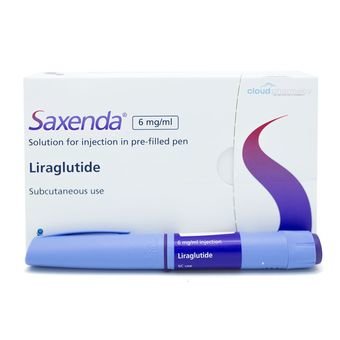Mounjaro & Menopause: What You Need To Know
Menopause occurs after a woman has not experienced a menstrual cycle for a period of 12 months. Your menstrual cycle stops due to lower hormone levels, which occurs naturally between the ages of 45 and 55. However, a decrease in hormone levels may occur at an earlier age or due to reasons such as surgery.
Hormonal changes during menopause can lead to weight gain, among other symptoms.
Recently, there has been much attention on menopause and Mounjaro, and whether the weight loss drug is beneficial for menopausal weight gain.
Is Mounjaro safe and beneficial for menopause? This article will answer frequently asked questions about Mounjaro and menopause.
Understanding menopause and its challenges
Menopause is a period during which a woman goes 12 consecutive months without menstrual periods. This naturally occurring phase typically begins at the age of 45 to 55.
Menopause occurs when the ovaries stop producing reproductive hormones. Menopausal symptoms may occur several years before menopause occurs; this is called perimenopause.
The ovaries produce the hormones oestrogen and progesterone. These two hormones control menstruation and play an important role in body shape, body hair, breast development, and other female physiological traits. They also play a role in pregnancy and fertility.
Symptoms of perimenopause and menopause may include:
- Menstrual cycle changes
- Mood changes
- Memory or concentration problems
- Hot flushes
- Night sweats
- Palpitations
- Difficulty sleeping
- Reduced sex drive
- Vaginal dryness and discomfort during sex
- Skin changes such as dry and itchy skin
Joint pains and muscle aches - Migraines and headaches
- Urinary tract infections (UTIs)
- Weight gain
Symptoms of menopause or perimenopause may last for months or years and change over time. For example, night sweats and hot flashes may ease, and then anxiety or mood changes may begin.
Why does menopausal weight gain occur?
Weight gain is a prevalent symptom among perimenopausal and menopausal women. Women gain, on average, 1.5kg per year during perimenopause and 10kg by the time menopause is reached.
Several factors may cause weight gain during menopause:
- Lower oestrogen levels: Oestrogen helps regulate metabolism and fat distribution. When oestrogen levels decrease, the body distributes fat around the abdominal organs. This redistribution of fat may increase visceral fat, which is associated with an increased risk of type 2 diabetes and heart disease.
- Increased insulin resistance: Insulin resistance is a health condition where the cells no longer respond to insulin, which is a common symptom during menopause. Insulin resistance may cause uncontrolled blood sugar levels and contribute to weight gain. This condition is linked to stomach obesity and an increased risk of type 2 diabetes and metabolic syndrome.
- Loss of muscle mass and decreased metabolism: Menopause is linked to a decrease in metabolic rate — the rate at which the body burns calories while resting. A decreased metabolic rate may make losing or maintaining weight more challenging.
- Inadequate sleep: Symptoms of menopause, such as hot flashes and night sweats, can cause disturbed sleep. Research suggests that insufficient sleep may lead to weight gain and impact metabolism.
According to research, obesity may increase the severity of symptoms that menopausal women may experience, as well as reduce the efficacy of prescribed hormone therapy.
Several studies show that perimenopausal women with obesity experienced more severe symptoms than women of normal weight. One reason for this is that perimenopausal women with obesity have lower oestradiol and follicle-stimulating hormone (FSH) levels.
Challenges in managing menopausal obesity
Managing obesity or excess weight in menopausal women is a challenge due to many barriers undermining weight loss strategies. Some of these barriers include decreased metabolism and other underlying metabolic conditions.
How Mounjaro works
Mounjaro is a prescription medication approved for the treatment of obesity and type 2 diabetes. This injectable medication contains the active ingredient tirzepatide, which is a glucose-dependent insulinotropic polypeptide (GIP) receptor agonist and a glucagon-like polypeptide -1 (GLP-1) receptor agonist.
Mounjaro (tirzepatide) attaches to the naturally occurring hormones GIP and GLP-1 and mimics how they work. The body is prompted to increase the amount of insulin made by the pancreas, helping regulate blood sugar levels and reduce appetite.
This medication also helps:
- Stop the liver from making or releasing too much sugar
- Delay gastric emptying
- Reduce food consumption
- The body removes excess glucose from the blood
Mounjaro and menopause weight gain symptoms
Can Mounjaro help with menopause weight gain?
Mounjaro is approved for treating those with type 2 diabetes and recently has been approved for use to treat obesity and excess weight. While Mounjaro is shown to be an effective weight loss aid, there is no specific research on its efficacy in relation to menopause weight gain.
Hormonal balance
A common symptom of menopause is weight gain due to hormonal changes. Mounjaro may help manage hormonally-driven insulin resistance and reduce heart disease risk factors.
Additional benefits
Mounjaro is a GLP-1 and GIP medication that may provide relief from some symptoms of menopause, such as:
- Reducing the risk of developing heart disease and type 2 diabetes
- Weight loss may relieve vasomotor symptoms such as night sweats and hot flashes.
Safety and precautions for using Mounjaro during menopause
No weight loss medications, including Mounjaro, have been created or approved for weight loss during menopause. However, Mounjaro is approved for weight loss of obese and overweight adults, and those with type 2 diabetes.
All medications have side effects and risks. Mounjaro (tirzepatide) is a new weight loss treatment with few long-term effects known as of yet. Common side effects of Mounjaro include:
- Nausea
- Vomiting
- Fatigue
- Injection site reactions
- Constipation
- Diarrhoea
- Bloating
- Reflux or heartburn
- Low blood pressure
- Low blood sugar
Warnings and precautions for Mounjaro include:
- Risk of thyroid C-cell tumours
- Pancreatitis
- Hypoglycemia (low blood pressure) in type 2 diabetes patients taking insulin or insulin secretagogues
- Hypersensitivity reactions
- Acute kidney injury
- Severe gastrointestinal disease
- Diabetic retinopathy complications
- Acute gallbladder disease
Where can you purchase Mounjaro in the UK?
Weight loss medications like Mounjaro can be a valuable tool to help aid weight loss. Mounjaro increases insulin sensitivity, controls blood sugar levels, and can help you feel full for longer.
There are no weight loss medications currently available that have been created or proven safe for weight loss during menopause. This includes Mounjaro and menopause symptoms. Hormone replacement therapy (HRT) is the first-line treatment.
If you are struggling with weight gain during perimenopause and menopause, talk to your pharmacist or healthcare provider about the benefits of Mounjaro and menopause weight gain.
Cloud Pharmacy can help you determine which weight loss treatment is best for you during a free online consultation. If Mounjaro is the most appropriate treatment, it will be discreetly and safely delivered to your UK address.
Click here to book a consultation with Cloud Pharmacy to find out more about Mounjaro.
FAQs
What can worsen menopause symptoms?
The causes of worsening menopause symptoms depend on the person and their symptoms. For example, spicy foods and warm environments may increase hot flashes. Alcohol and caffeine may also cause menopausal symptoms.
Recent studies show perimenopausal women with obesity experience more severe symptoms than perimenopausal women of a typical weight.
What is the best medication for weight loss during menopause?
Mounjaro (tirzepatide) is both a GIP and GLP-1 medication that is very effective for weight loss. While this medication has not been studied specifically in patients with menopause, it can be used to aid weight loss and manage symptoms beyond weight gain.
What are the weight loss injections for menopause?
Mounjaro, Wegovy, and Ozempic are all effective weight loss medications that may make menopause weight gain easier to lose. However, these weight loss medications are currently not prescribed for menopausal weight gain but rather for obesity and overweight with weight-related health conditions.
Talk to your pharmacist or healthcare provider about your concerns if you are experiencing menopausal weight gain, and they will be able to advise the most appropriate steps moving forward.
Sources
- https://www.nhs.uk/conditions/menopause/
- https://www.sciencedirect.com/science/article/pii/S1521693423000482
- https://www.cloudpharmacy.co.uk/
- https://www.cloudpharmacy.co.uk/online-doctor/menopause-hrt/
- https://www.cloudpharmacy.co.uk/online-doctor/weight-loss-treatments/
- https://pi.lilly.com/us/mounjaro-uspi.pdf?s=pi
- https://www.medicines.org.uk/emc/files/pil.15481.pdf
- https://www.nejm.org/doi/full/10.1056/NEJMoa2206038
https://www.gov.uk/government/news/mhra-authorises-diabetes-drug-mounjaro-tirzepatide-for-weight-management-and-weight-loss - https://www.cloudpharmacy.co.uk/online-doctor/weight-loss-treatments/mounjaro-weight-loss-injection/
- https://www.ncbi.nlm.nih.gov/pmc/articles/PMC6947726/
- https://www.menopause.org/annual-meetings/2023-meeting/scientific-program
- https://thebms.org.uk/wp-content/uploads/2023/06/19-BMS-TfC-Menopause-Nutrition-and-Weight-Gain-JUNE2023-A.pdf
- https://www.cancer.gov/publications/dictionaries/cancer-terms/def/ovary
- https://www.cloudpharmacy.co.uk/guides/mounjaro-reviews/
- https://www.ncbi.nlm.nih.gov/pmc/articles/PMC10159347/
- https://www.nia.nih.gov/health/menopause/what-menopause
- https://bmcpublichealth.biomedcentral.com/articles/10.1186/s12889-021-10369-9



















